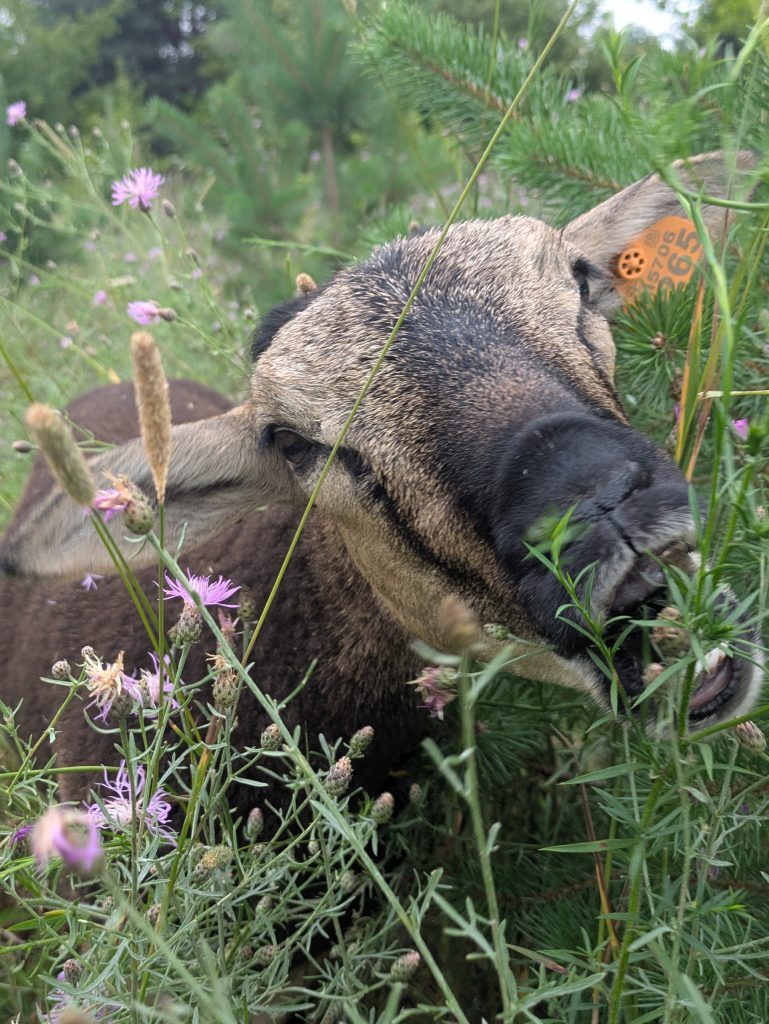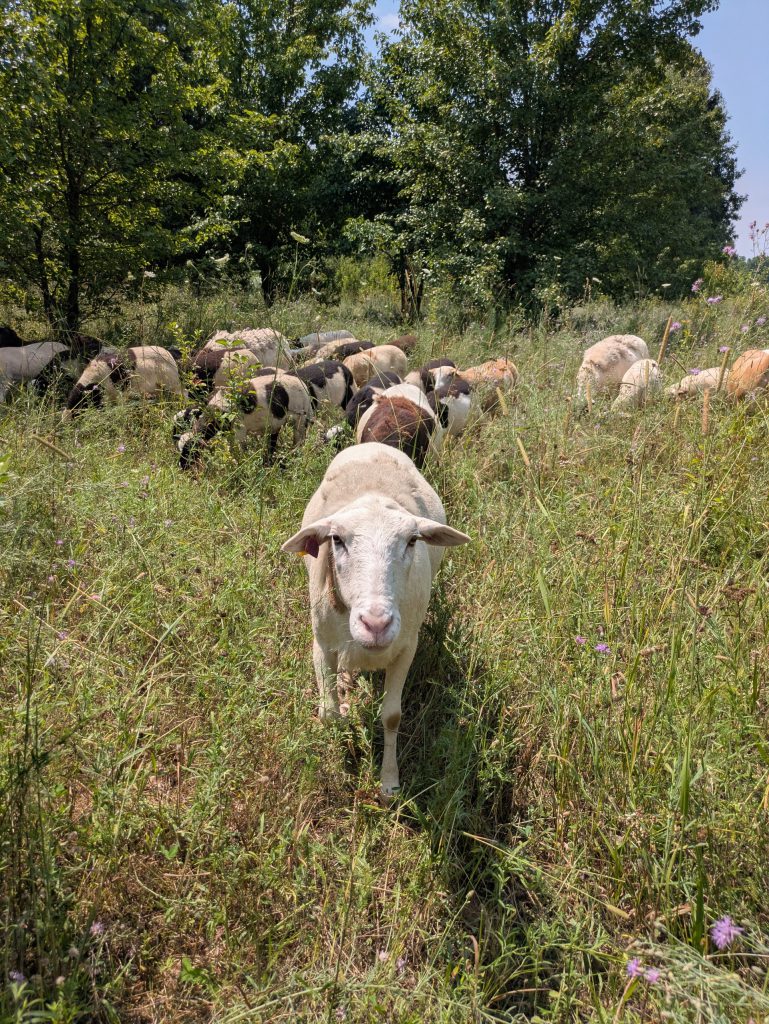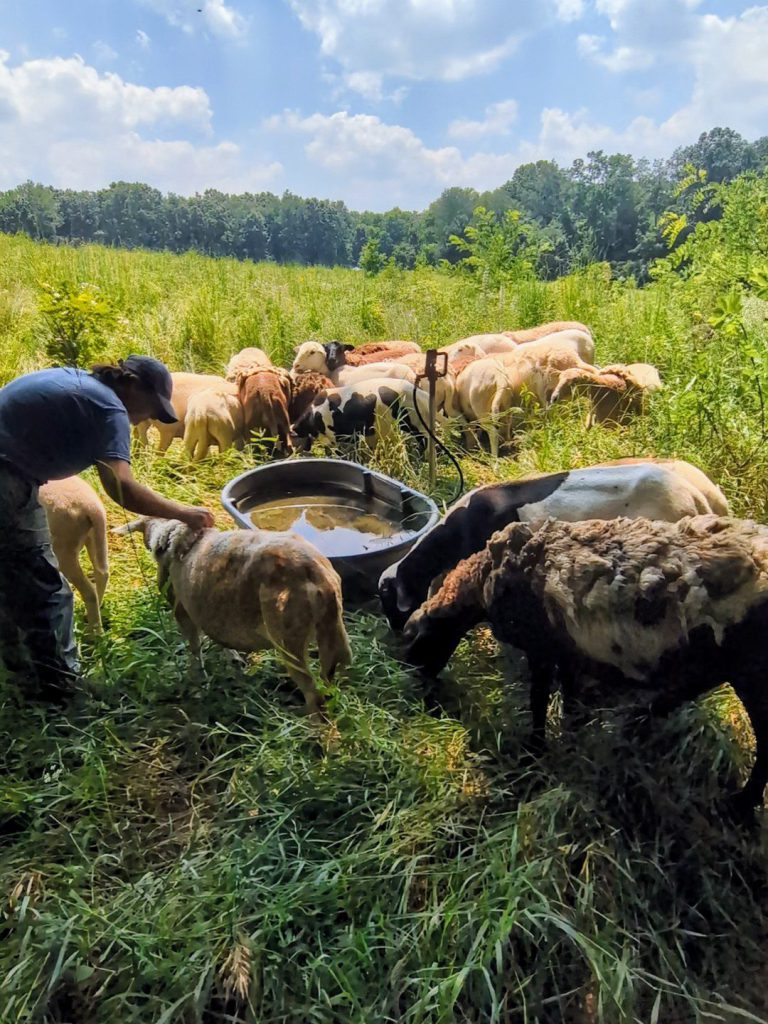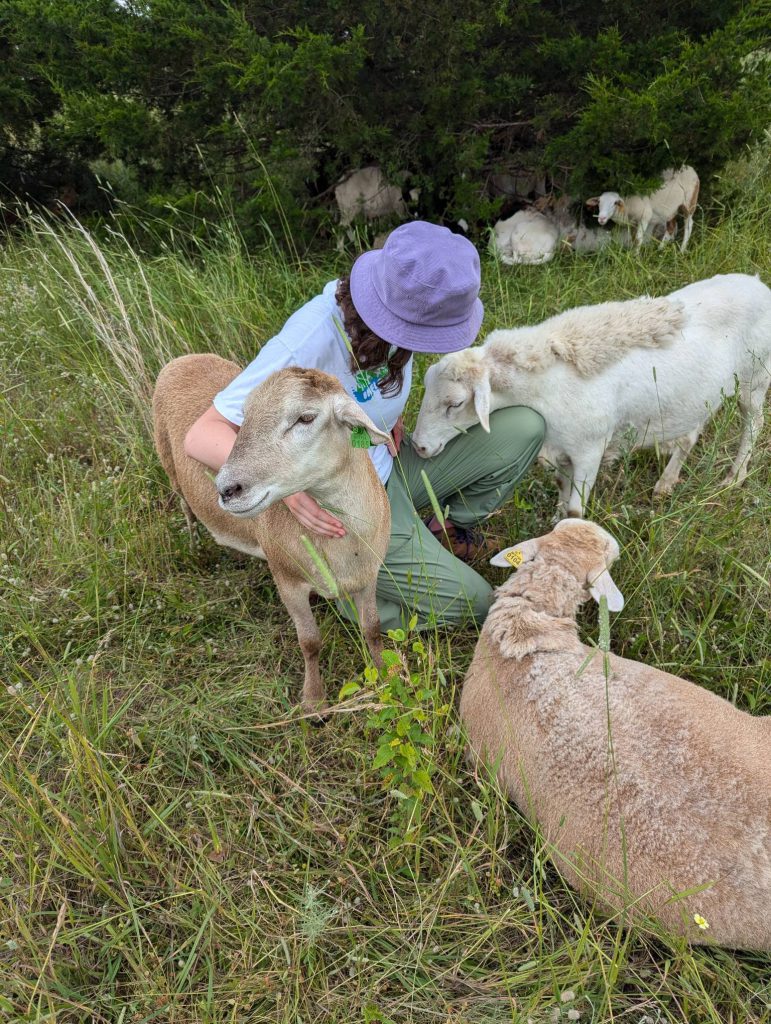This blog post is part of the ESC Summer Fellowship 2025 series. These fellowships provided funding for research projects related to the environment, sustainability and/or the Climate Action Plan. This post was written by Grace Lounds, one the fellows of this past summer cycle.
For the past three summers now, Tending Tilth has taken on interns from K College to aid in sustainable sheep grazing. My name is Grace Lounds, and I am one of these interns! The other two this summer are Lauren Stallman and Gwen Crowder Smith, and together we have worked under Lauren Burns, getting gritty with plenty of hands-on farm work. This opportunity will likely be available to K College students in future years, so I wanted to share some of the valuable lessons I’ve learned (and the fun I’ve had) for anyone curious about sustainability, sheep, or maybe thinking about following in my footsteps!
About Tending Tilth and Sustainable Grazing
Tending Tilth is a contract-based sheep grazing business. This means that different clients hire us to bring sheep to their properties as an alternative to conventional machine mowing. Founded and operated by Lauren Burns, Tending Tilth functions year-round under her direction, with support from us summer interns.
The work we do has numerous conservational benefits for the ecosystems we graze. Sheep eat invasive species such as spotted knapweed, (as well as other unwanted plants like poison ivy), promoting native plant communities and biodiversity. Grazing also mechanically changes the landscapes we visit. When sheep graze, they trample down plants, stimulating plant growth, pressing dead plants into the soil, and pushing seedheads into the ground. This simultaneously presses their own manure into the soil, fertilizing the soil without harmful chemicals. Their urine also acts as a very nutrient-rich water resource for plants and microorganisms. Through these combined actions, (nutrient cycling, soil aeration, and organic matter incorporation), grazing helps build topsoil, promotes biodiversity, and strengthens root systems. Strong plant growth sequesters carbon and prevents drought.
Currently, Tending Tilth is working with GVSU Geology Department ‘s Professor Tara Kneeshaw to study soil health, proving that sheep grazing helps to sequester carbon. This is a study that will take 3 years, but preliminary findings already suggest that Tending Tilth’s practices enhance ecosystem health and contribute to climate change mitigation.

A Day on the Farm
Tending Tilth has about 80 sheep. Right now our sheep are split into two groups, the working group and the lambs, who are chaperoned by their grandmas and a couple male sheep. The lambs stay at the farm while the working group rotates from site to site, meaning that every day looks a bit different for us depending on where we are. The first thing we do when we get to a new site is to survey the land and make a plan for fencing. We use electric fences that we put up at each new location. Most of my time is spent putting up fences and taking them down later. Other chores include filling water tanks and setting up shade sales. Free time is spent making sure the sheep are happy and healthy. The male sheep can be quite cuddly, so I love giving them head scratches and patting their chubby bellies. I’ve also aided in hoof trimmings, fly bite treatment, giving shots, and deworming sheep.
The sheep are by far the most exciting part of the job. They’ve really stolen my heart, so much so that I am now seriously considering going to a large animal vet school after I graduate. My favorites are King Louis who’s part of the working group. He has a big personality and always runs right up to me and scratches his head on me. Gus is also a cutie. He’s only a few months old and he looks like a baby deer. He’s the nicest lamb from this season and likes to follow the adult sheep around. He used to be pretty shy but he’s really warmed up over the summer.
I could go on and on about all the sheep and their personalities, and all of the fun things I’ve done over the summer like installing a monitoring well or doing soil samples, but I think that’s all I’ll share to keep this short and sweet! For more information about Tending Tilth you can visit tendingtilth.com, and for more information on the science behind conservational grazing stay posted for the SIP’s that Gwen and Lauren will be completing and presenting at Arcus in the spring!



Environmental Stewardship Center
Subscribe to receive posts about the ESC, academics, student projects and events directly to your inbox!
